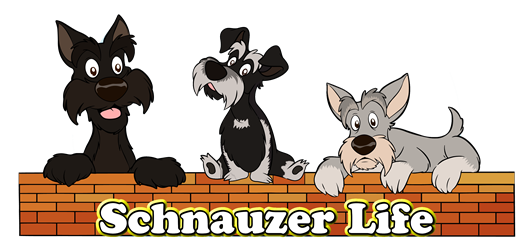Growing up, our parents would make some things sound so horrible and scary as a way to instill fear in us, just to prevent us from doing certain things.
Well, when I was in veterinary school, our instructors instilled a warranted and significant fear of the pancreas. Don’t anger your dog’s pancreas because it isn’t forgiving!
What is the pancreas, and what does it do exactly for our pets? It is a V-shaped gland located in the upper area of your dog’s abdomen.
The pancreas' primary purpose is to secrete digestive enzymes and other substances that aid in the absorption of nutrients and certain vitamins and minerals from your pet’s food. Since the pancreas has such an important job, it gets very angry when its normal functions are interrupted.
And what happens when we make the pancreas angry? Pancreatitis. There are two types of pancreatitis — acute and chronic.
What is Pancreatitis in Dogs?
- Acute pancreatitis occurs abruptly with little to no permanent changes to the pancreas.
- Chronic pancreatitis is continuing inflammation that often results in irreversible or permanent changes in the pancreas.
In general, with acute or chronic pancreatitis, inflammation causes activations of enzymes within the pancreas itself. This results in a progressive breakdown of the pancreas' tissue by its own enzymes — in short, think of it as eating itself!

Possible Causes of Pancreatitis in Dogs
Typically, in dogs with spontaneous pancreatitis, the cause is unknown. And the symptoms are so variable that an owner can miss a mild bout of pancreatitis — but the damage has already begun. Dogs that have acute pancreatitis are likely to have it happen again, eventually creating a chronic condition.
The following is a list of just some of the potential factors that are considered possible causes of pancreatitis:
- Dietary indiscretion: If a dog eats food that they usually don’t consume and/or that food is high in fat.
Even if an animal has regularly gotten table food or fatty foods, an adverse reaction to the food can happen at any time. I have had many patients who have gotten table scraps for an extended period and were fine. Then one day, their pancreas decided it had had enough.
- Obesity: Obese dogs have higher fat in their blood compared to thinner dogs. Plus, acute pancreatitis causes an uncontrolled breakdown of visceral fat, which is rich in unsaturated triglycerides — releasing unchained fatty acids, which in turn causes necrosis and worsening of pancreatitis.
- High amounts of fat present in the blood: This is a condition some dog breeds are more likely to have than others, such as Miniature Schnauzers. A diet that is high in fat can cause high levels of fat in the blood.
- Blunt abdominal trauma: Injuries to the abdomen, such as being hit by a car, another pet running into them, etc.
- Certain medications or toxins: Any medication or toxin that can lead to inflammation of the pancreas can cause an issue. Some possible examples include some chemotherapy medications, corticosteroid therapies, or certain antibiotics. Your veterinarian will determine what is the best medical care for your pet and advise you of any risks. There are household and environmental toxins such as zinc and organophosphates that have also been linked to pancreatitis.
- Presence of other diseases: Diabetes Mellitus, chronic kidney disease
- Infectious agents: Parvovirus, Babesia canis, upward movement of intestinal bacteria, aberrant movement of intestinal parasites
- Kidney & Liver issues
- Cushing's Disease
At What Age is a Dog More Likely to Get Pancreatitis?
In reality, any dog can be affected at any age. But acute pancreatitis is most common in middle-aged or older dogs (older than 7 years old).
Are Some Dog Breeds More Likely to Get Pancreatitis?
Any breed of dog can develop pancreatitis, but Miniature Schnauzers, Miniature Poodles, and Cocker Spaniels seem to have a higher rate of occurrence. Why? One reason is that these dog breeds tend to have high blood triglyceride levels (high levels of fat in their blood).
Signs Your Dog Might Have Pancreatitis
Now that you know what pancreatitis is and how it happens, let's look at what the signs or symptoms of pancreatitis are so you know when you need to have your dog checked out by a veterinarian. Clinical signs of pancreatitis — the ones you can see — can be vague or unclear, and not specific to just pancreatitis. Also, there are times that the secondary complications of pancreatitis cause these symptoms. This is why it is important not to delay going to the veterinarian if you see any of these symptoms.
Symptoms of Pancreatitis in Dogs
When dogs get pancreatitis, the general clinical signs involve the gastrointestinal tract.
- Vomiting: This is the most consistent sign but can be absent
- Not eating
- Acting depressed
- Painful in the abdominal area: Your dog will likely be restless, panting, trembling, or look "hunched-up." Here's an example of what "hunched up" might look like:

- Diarrhea
- Fever
- Weakness, or in severe cases, collapse
Symptoms of pancreatitis tend to be vague and nonspecific. Often, when getting diagnosed by the veterinarian, other illnesses are found. Diagnosis is often made from the combined results of the exam, bloodwork, and an ultrasound of your dog's abdomen.
Treatment for Pancreatitis in Dogs
There is no specific or standard veterinary treatment protocol for pancreatitis in dogs. Typically, it involves supportive care with IV fluids and medications to treat the secondary effects: vomiting, stomach pain, diarrhea, fever, etc. If another illness or condition is diagnosed at the same time as pancreatitis, measures are taken to address that as well. Even with aggressive treatment, the prognosis is still questionable.
Unfortunately, there are complications associated with pancreatitis, including:
- Pulmonary edema: Fluid in the lungs
- Cardiac arrhythmias: Irregular heartbeat
- Peritonitis: Inflammation of the lining of the abdomen and pelvic cavity, which can be fatal
- DIC (Disseminated intravascular coagulation): Abnormal functioning of the body’s natural blood clotting and clot-dissolving mechanisms, which can be life-threatening
- Failure to respond to treatment
- Secondary issues can include diabetes and exocrine pancreatic insufficiency
If your pet has had or is suspected of having pancreatitis, change over to a low-fat diet, and decrease body weight if they are overweight. Avoid giving too many treats, especially any treats containing fats. Absolutely avoid ANY fatty human foods such as meat, cheeses, etc.
Once your pet has had pancreatitis, they are more likely to have it again. And every time your pet has pancreatitis, their ability to recover each time diminishes. Preventive measures and following your veterinarian’s treatment plan are crucial for their health. Pancreatitis can be fatal.
How to Prevent Pancreatitis in Dogs
While it isn’t possible to prevent all causes of pancreatitis, it is very easy to prevent some of them.
 Strictly Monitor and Control Your Dog’s Diet
Strictly Monitor and Control Your Dog’s Diet
The first significant benefit of this is the prevention of obesity — always measure out your dog's food and treats for the day. Be sure that your dog's diet matches their lifestyle and life stage, such as feeding a senior formula versus an adult formula. Your veterinarian can help recommend the best diet for your dog since they know your dog and their health history.
Do not feed a high-fat diet or add fat to the diet. Avoid giving human foods. While some foods such as carrots and green beans are considered dog-safe, others like grapes and raisins are toxic. Grapes and raisins can cause kidney damage, and damage to the kidneys is a risk factor for pancreatitis.
Besides their potential high-fat content, human food can be high in salt or contain ingredients that are toxic to your pet. For instance, many seasonings added to meats contains onions or garlic, which are toxic for animals. Remember — toxins are on the list as a risk factor.
Some food products, such as peanut butter or "keto-friendly" ingredients, may contain xylitol — which is extremely toxic to dogs. Always confirm with your veterinarian if a particular food is safe or not to give your dog.
Keto Diets and Dogs
Remember, dogs are not people. Just because humans may do well on the keto diet and "good fat bombs," such as coconut oil, MCT oil, and grass-fed butter, which can be beneficial to people — that situation does not apply to dogs. While your dog can have relatively small amounts of coconut oil in order to gain the benefits of MCT (medium-chain triglycerides), it isn't really recommended. The reason for this is two-fold:
- You may give them too much by accident, which can aggravate the pancreas.
- Coconut oil has long-chain triglycerides, and the amount of MCT is very variable from brand to brand.
The MCT contained in dog-specific diets, such as Purina's Brain Health (formerly Bright Mind) formula, are enhanced with botanical oils and are designed to provide your pet with all the benefits of MCT without the dangers.
A small dash of extra-virgin cold-pressed oils, such as olive oil, avocado oil, coconut oil, and flaxseed oil, is safe. Even a small amount given periodically of xylitol-free peanut butter can be okay. But DO NOT give these things to breeds predisposed to high-fat levels in their blood, such as Miniature Schnauzers or Poodles, or dogs with a history of pancreatitis.
Even if you have periodically or even regularly given human foods and your dog seemed fine, pancreatitis can happen at any time.
If your pet has a history of pancreatitis, be sure to let your veterinarian know, as this may determine what medications or treatments they prescribe for any future health issues.
I cannot emphasize it enough that pancreatitis is a very serious disease with the risk of serious complications. Prompt and aggressive treatment is needed for the best outcome. Preventing obesity for your dog's entire life and avoiding inappropriate human foods (especially fatty foods) can be a key factor in avoiding this disease. You never know when your dog has suffered from this disease in silence, so always take precautions to avoid factors that can anger their pancreas.
_________________________________
About the author
Beth Turner is a veterinarian with over 20 years of experience. She graduated from North Carolina State College of Veterinary Medicine and following graduation, she began her career as an associate veterinarian and worked closely with the local shelter.
In 2007 she accomplished her dream of practice ownership, designing and building her own clinic. Another meaningful role, while running her clinic, was serving as her county's shelter veterinarian. This gave her the opportunity to help improve the lives of many animals in her community as well as work with the rescue she loved. She sold her practice in 2019 to move across the country.



